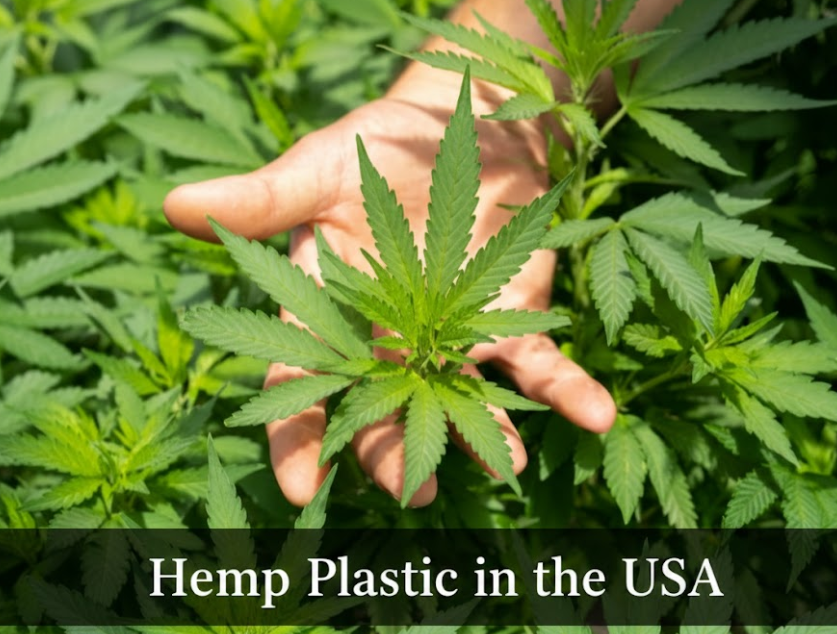Panama Turns to Hemp as a Green Solution to Economic Troubles
Panama’s National Assembly might just have made history. They approved a law to legalize hemp farming and sales. This could change everything.
The country is fighting unemployment. Its Social Security Fund is in crisis. Hemp might be the answer.
Supporters believe it could create thousands of jobs and provide a much-needed boost to the agricultural sector.
Hemp is a versatile plant. It’s part of the Cannabis sativa family, just like marijuana. But they are not the same.
Hemp has almost no delta-9-THC—the chemical that makes you high. That means it can be safely used for industrial and commercial purposes without any psychoactive effects.
Moreover, the plant has a long list of uses. Hemp is a powerhouse, loaded with fiber, seeds, and oil. It is perfect for producing textiles, paper, building materials, food, and even cosmetics. In other words, hemp is a natural solution with countless applications. Because it grows quickly and uses less water and pesticides than other crops, it is also environmentally friendly.
Independent lawmaker Carlos Saldaña spearheaded the newly approved Bill 26. It outlines strict regulations for every stage of hemp production, from planting and harvesting to marketing and export. It also regulates the distribution, use, and possession of hemp seeds. For Panama, hemp is a lifeline now. As the workforce struggles, hemp could turn things around. Jobs, growth, and a brighter future could be created all from one plant.
Since Panama’s Social Security Fund has been under strain, it leaves many without stable incomes. The hemp industry promises to create jobs without relying on government aid. Farmers and agricultural workers stand to benefit the most.
Hemp cultivation can increase their yields and open doors to new markets. But the benefits don’t stop at employment. Hemp is a sustainable crop that even enriches the soil. The decision to legalize hemp also positions the country as a potential player in the global market for sustainable products. With many countries shifting toward eco-friendly alternatives, hemp’s popularity is on the rise.
The bill’s approval is a significant step, but it’s not the final one. It now heads to President José Raúl Mulino, who will decide whether to sign it into law or veto it. If approved, Panama might become one of the many nations using hemp’s untapped potential to address broader environmental and economic issues.
Even though the final decision rests in the hands of the president, the passing of this bill is a sign of hope for thousands of agricultural workers. It positions hemp as a vital part of Panama’s economic recovery. Throughout history, hemp has often been overlooked, but now it is up to Panama to use it to its full potential.
Vishal Vivek
Vishal Vivek is the Founder and CEO of Ukhi, a pioneering bio-materials company dedicated to ending plastic pollution by converting agricultural waste into high-performance compostable polymers. With a background in sustainable entrepreneurship and over a decade of technology experience, he leads Ukhi’s vision to create scalable, planet-positive material solutions. Previously, Vishal founded the Hemp Foundation, where he empowered more than 1,000 farmers and advanced sustainable livelihood initiatives. His work has been recognized through awards such as the HDFC Parivartan Grant and featured in leading publications like Forbes and Entrepreneur. Times Group recognized him as a legendary entrepreneur and published his biography in “I Did IT- Vol 2” alongside social pioneers like Bindeshwar Pathak (Sulabh International) and Anshu Gupta (Goonj). Vishal has authored more than 200 articles on sustainability and hemp, reflecting his deep expertise and advocacy for regenerative solutions. His commitment to grassroots impact led him to live in the remote mountains of Uttarakhand, where he immersed himself in the lives of marginal farmers, understanding their challenges and co-creating economic opportunities through hemp-based initiatives. A deeply passionate innovator, Vishal often draws inspiration from seemingly impossible achievements: “If Elon Musk can make rockets reusable, or Dashrath Manjhi can carve a path through a mountain with rudimentary tools, why can’t we eliminate the demon of single-use plastic while uplifting struggling farmers? We will make it happen—whatever it takes.” Ukhi is proud to be supported by premier institutions including IIT Guwahati, NSRCEL-IIM Bangalore, Indian School of Business (Hyderabad), Indian Council of Agricultural Research (ICAR Pusa), and the Indian Institute of Packaging. Vishal is committed to demonstrating that business can be a powerful catalyst for global environmental and social good. Connect with Vishal Vivek
Related Posts
How Hemp Fabrics Are Made
Before we tell you how to make hemp fabric, let’s showcase a bit of hemp’s history.Hemp for Vict
Hemp Bioplastic: Nature’s Gift to End Plastic Pollution
[vc_row][vc_column][vc_column_text]Few inventions have affected human lives as much as synthetic pla
Hemp Plastic in the USA: Buyers Guide, Local Trends, Regulation
If there is one industrial material that defines the last century, it is plastic. But it is also t





